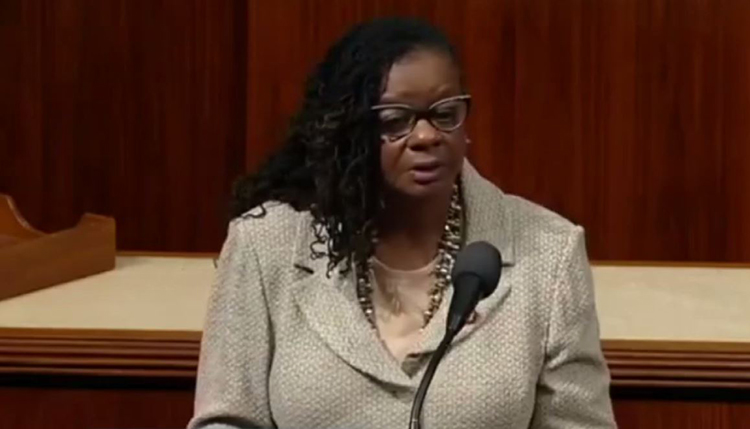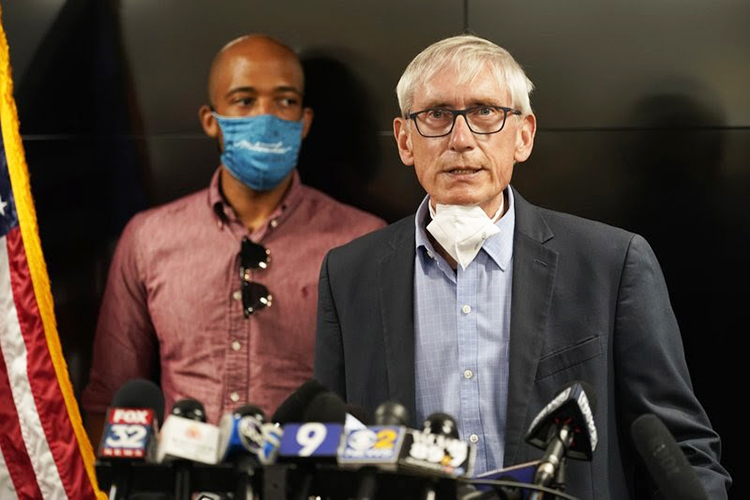Today, Congresswoman Moore voted in support of the Health and Economic Recovery Omnibus Emergency Solutions (Heroes) Act, a comprehensive COVID-19 relief package to address our current public health and economic crisis. In response, she released the following statement:
“The Heroes Act boosts the resources provided in the CARES Act to support working people on the front lines, small businesses, hospitals, and local state and tribal governments, all of whom are facing historic financial strains as a result of the economic downturn triggered by the COVID-19 pandemic.
The Heroes Act also supports safe elections, helps the Postal Service, and makes efforts to guarantee a fair count in the 2020 Census by securing additional funding.
This legislation supports the courageous workers on the frontlines with hazard pay, including sanitation workers, grocery store, and others who cannot telecommute and are putting themselves at risk every day to serve our communities.
As unemployment rates continue to spike and more Americans weather the storm of the financial crisis, I am pleased that the Heroes Act includes another round of direct payments and strengthens the unemployment systems and extends unemployment benefits. I advocated strongly for additional direct cash payments because I know the economic impact of the pandemic will likely linger even as the economy recovers. I will continue to fight for additional rounds of this direct assistance.
The Heroes Act is a bold proposal that is reflective of values I hold dear and that includes many measures that I fought for, notably:
Additional direct payments of $1,200 for all individuals and dependents up to $6,000 for families to provide immediate cash relief for Americans. Expanded eligibility for these payments such as making all dependents – not just children under 17 years old – and ITIN filers. Elimination of the interception and offset of child support arrearages, and additional outreach efforts to ensure all persons eligible receive the payment.
Elimination of the harsh work requirements and time limits for TANF.
Appropriation of$1.1 billion in funding for WIC programs
An increase in all SNAP benefits by 15% along with additional funding for the program to growing demand.
Appropriation of $100 million in additional funding for VAWA programs to support stretched domestic violence agencies as cases surge.
Appropriation of $1 billion in funding for Community Development Financial Institutions (CDFI) to increase access to financial capital in low-income neighborhoods and communities.
Investments in our public health, including robust funding for testing, tracing, and treatment for all Americans and an increase in the Medicaid FMAP.
Creation of a $200 billion “heroes fund” that would provide a “hazard pay” for essential workers.
Additional protections for renters and homeowners from evictions and foreclosures including $175 billion to states to help renters and homeowners pay mortgages, rent, and other housing costs and avoid default.
Appropriation of $900 billion to states, local governments, as well as Indian tribes and territorial governments to help prevent layoffs of public workers, cuts to services, or tax hikes.
While this legislative package is needed, I recognize it has many shortcomings. Not everything I wanted has been included. For example, these difficult times present an opportunity to provide more tools to help more Americans both through the crisis and after, including by making significant expansions to the Earned Income Tax Credit (EITC). I am grateful that the package includes some modest improvements to the EITC, but as negotiations more forward, I will be fighting to include my legislation, the Worker Relief and Credit Reform (WRCR)Act which would provide real relief by expanding and modernizing the EITC to put money to the pockets of nearly half of all Americans.
Additionally, I am also aware that there are provisions in this bill that are particularly contentious and with respect to which I support efforts to engage in more deliberation, including provisions intended to stabilize certain pension plans.
I support this legislation while understanding that this is just the first step in the negotiation process and that’s why I will continue to work to improve this legislation and prevent the inclusion of harmful provisions, such as any provisions that would harm Social Security benefits, among others.”





